Book of May / June 2024
What Strange Paradise
Discussion Guide
Host: Ketty Nivyabandi
Topics covered:

About the book
What Strange Paradise interweaves the stories of Amir, a young Syrian boy shipwrecked on a small Greek island, and Vänna, a teenage islander. Amir’s harrowing flight from the war in Syria contrasts sharply with Vänna’s sheltered island life. As Vänna becomes entangled in Amir’s fate, they both confront the hostility, indifference, and inhumanity of a system and culture grappling with the migrant crisis.
Themes of identity, belonging, resilience, and the desire for a better future run through the book. El Akkad poignantly depicts the hostility and prejudice that greet Amir upon his arrival, reflecting broader societal attitudes toward migrants.
What Strange Paradise also shines a light on critical human rights issues, including the right to seek asylum, the right to live free from fear and persecution, and the right to dignity.
El Akkad’s depiction of Amir’s perilous journey underscores the desperation that drives individuals to flee their homelands, often risking their lives in search of safety. The novel also depicts the way governments and social structures marginalize vulnerable people, highlighting the systemic injustices and human rights violations that migrants and refugees endure. By focusing on the personal stories of Amir and Vänna, El Akkad humanizes the refugee crisis, urging readers to consider the moral and ethical responsibilities they hold towards those seeking refuge.
El Akkad is an Egyptian-born Canadian novelist and journalist who lives in Portland, Oregon. His fiction and non-fiction writing has appeared in the Globe and Mail, The New York Times, The Guardian, Le Monde, Guernica, GQ and many other publications.
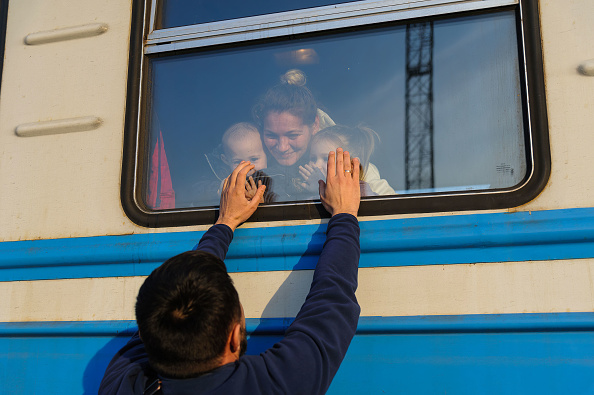
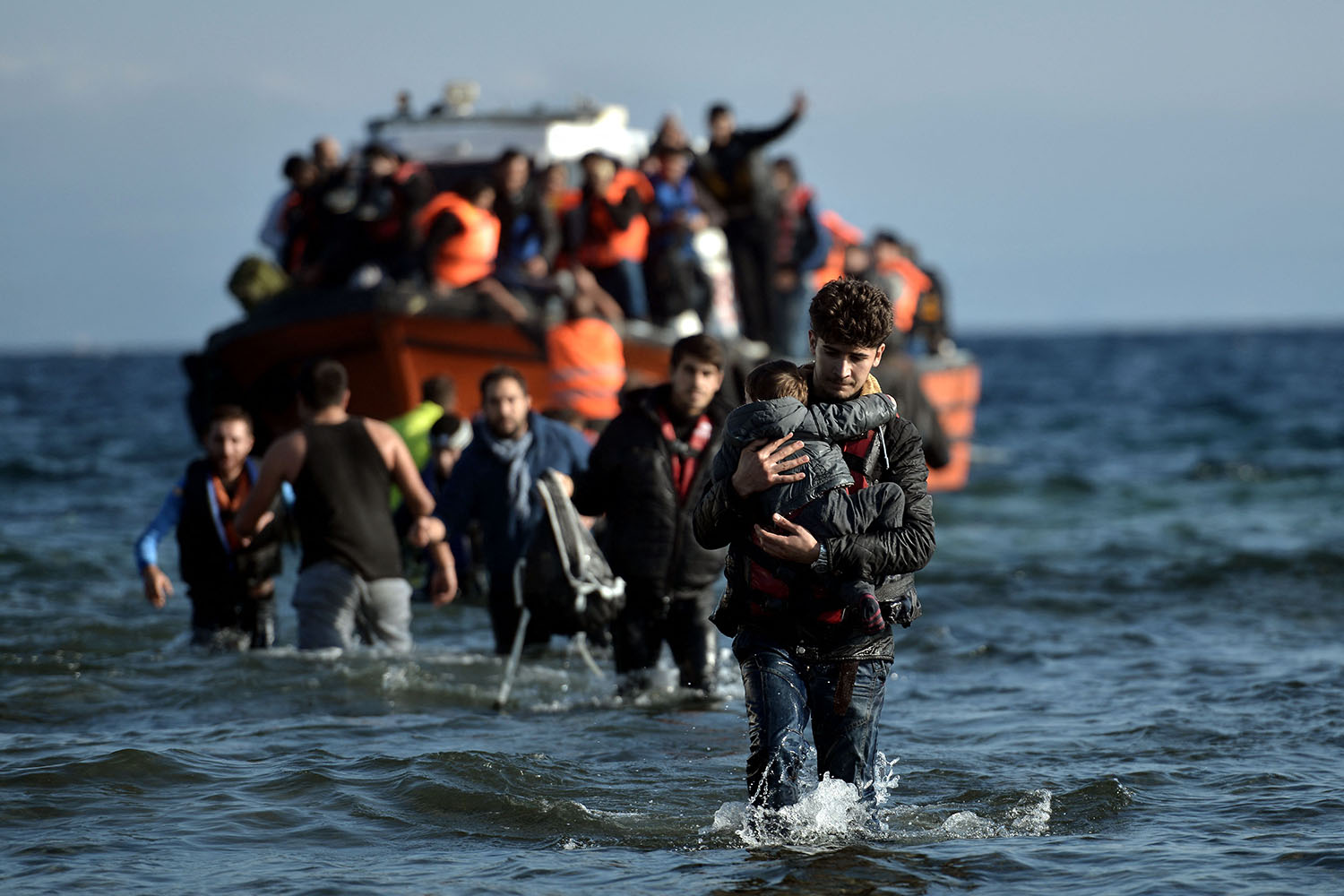
A bit of history
A Global Displacement Crisis
Fueled by the international community’s indifference
At the end of 2023, 117.2 million people worldwide were forcibly displaced from their homes or stateless. They fled because of persecution, war, violence, and human rights violations. This marks the largest ever single-year increase in forced displacement since World War II, propelled by war in Ukraine, Gaza, Sudan and other deadly conflicts.
Each year, one in every 78 people is forced to flee their home.
There are also millions of stateless people in the world who are denied nationality and access to basic rights such as education, healthcare, employment, and freedom of movement each year. In the 2021 census, 3,560 persons in Canada reported being stateless or lacking any citizenship.
Over the past decade, only 1% of displaced people were able to return home per year. In 2023, the top six places of origin for refugees and people needing international protection were Syria, Ukraine, Afghanistan, Palestine, Venezuela, and South Sudan.
Regardless of their status in a country, both regular and irregular migrants have human rights, including the right to freedom from slavery and servitude, freedom from arbitrary detention, freedom from exploitation and forced labour, the right to freedom of assembly, the right to education for their children, equal access to courts and rights at work.
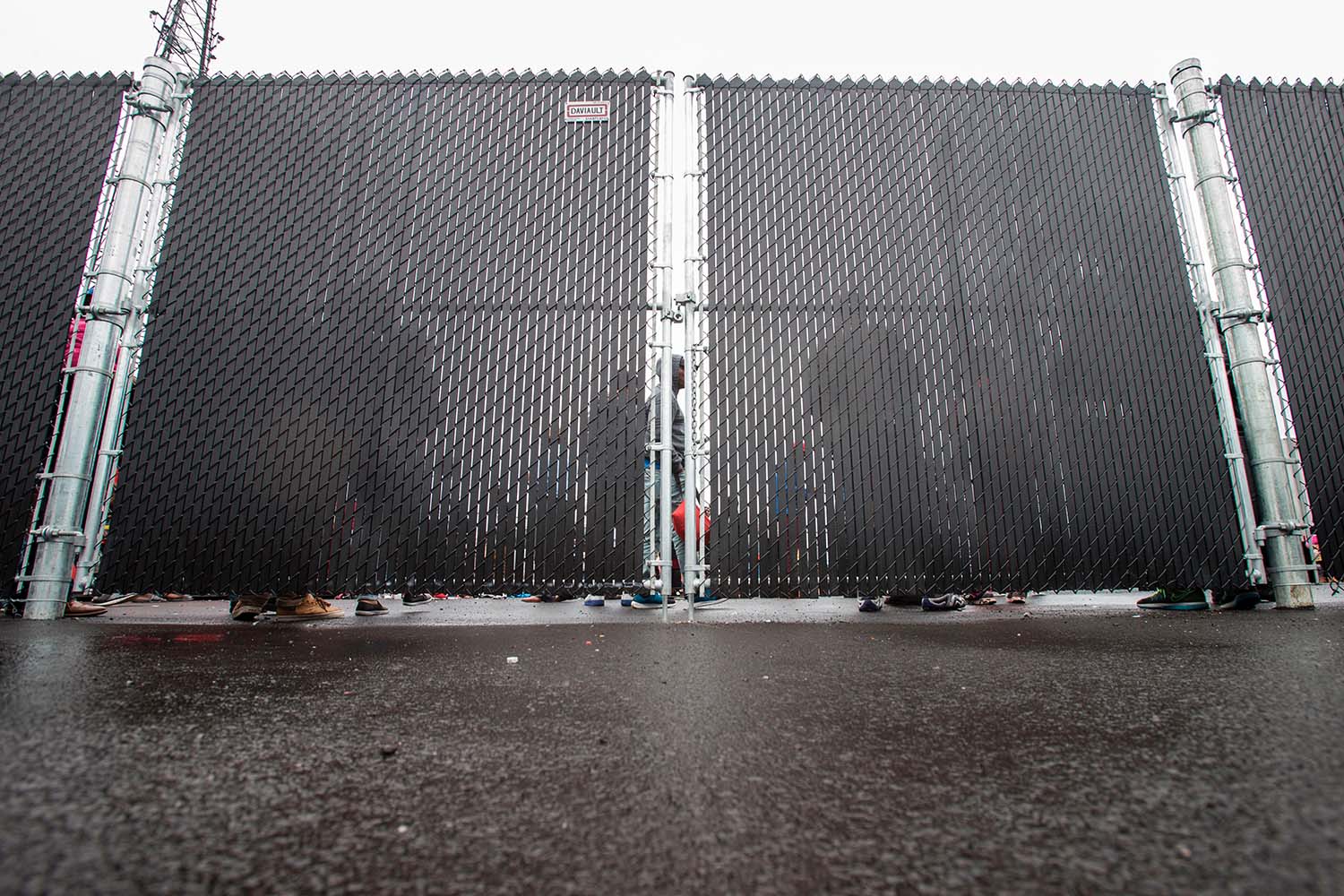
Immigration Detention in Canadian Federal Prisons
Since the launch of Amnesty and Human Rights Watch’s #WelcomeToCanada campaign in 2021, every single province has committed to ending its immigration detention agreements with the Canada Border Services Agency by April 2025.
Thousands of people are incarcerated on administrative immigration-related grounds every year, including people fleeing violence, those seeking a better life, and people who have lived in Canada since childhood.
António Guterres
UN Secretary-General
People in immigration detention are subjected to solitary confinement, indefinite detention, maximum-security jails, and handcuffs and shackles.
Instead of following the provinces’ lead and working to end immigration detention, the federal government plans to use federal prisons for immigration detention. It also aims to codify this human rights-violating practice into legislation.
Discussion Questions
- Why do you think the author chose to tell this story through the eyes of two children?
- How does the novel employ the image of the island as both a potential haven and a place of isolation? Discuss how it mirrors the experiences of both migrants and the communities they encounter.
- What does the Xenios Resort represent?
- How does the alternating viewpoint structure (Amir and Vänna) shape your understanding of the migrant experience and the dilemmas surrounding it?
- Amir’s father says, “People live—what else is there to do?” Amid war and displacement, what are some examples of people living their ordinary lives in What Strange Paradise?
- Vänna’s father says, “Who’s asking you to take sides? I’m just telling you the truth. The truth doesn’t take sides.” Discuss the nature of truth and whom it privileges.
- The book is full of choices, either to be kind or to act in fearful, self-interest. Highlight a few examples and discuss what would have happened differently if the characters had made other choices.
- How do intersecting identities of class, gender, age, skin colour, place of origin, religion, and language result in unique combinations of discrimination and privilege for the characters in the book?
- Can you identify parallels between the novel’s themes and current events in Canada?
- How does the book force us to look at ourselves and how we look at each other?
- Is this a hopeful story? Why or why not?
- What do you think the ending of the book means? Why do you think the author chose to begin and end the story in this way?
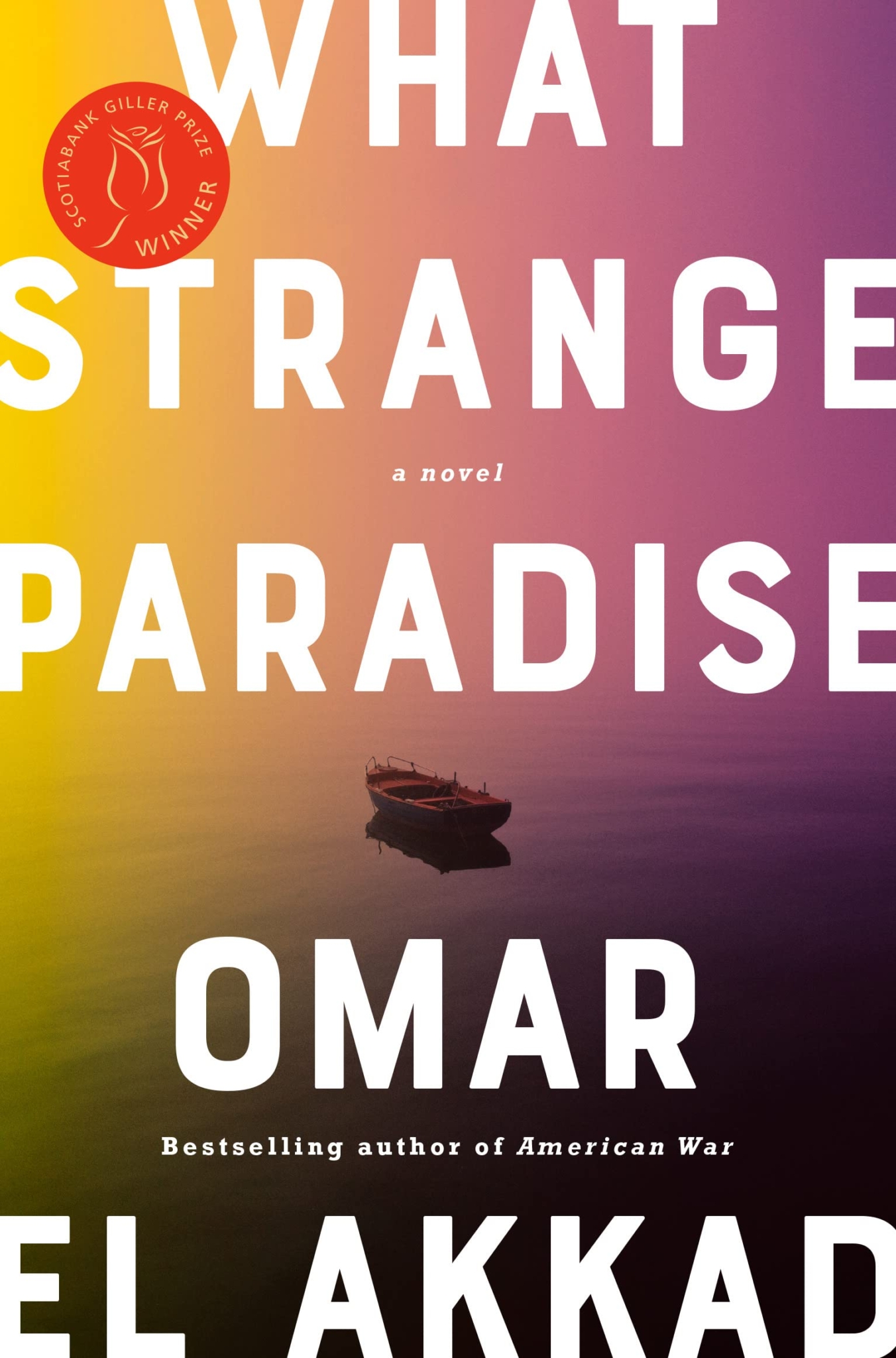
What Strange Paradise
By Omar El Akkad
McClelland and Stewart, 2021
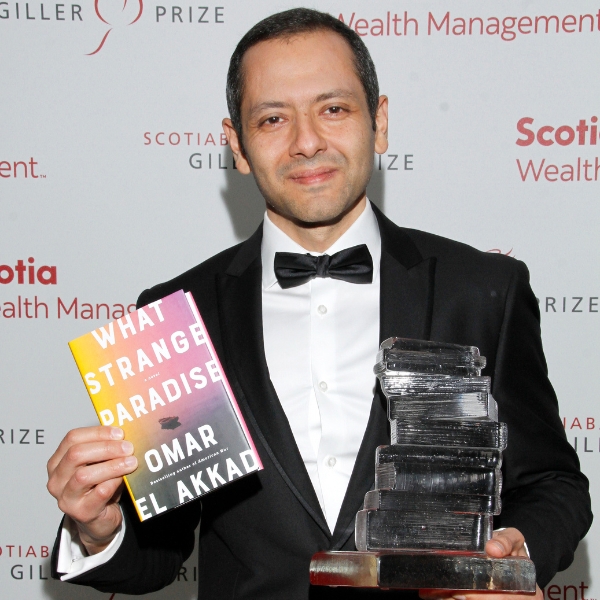
Omar El Akkad
Egyptian-Canadian Giller Prize-winning Author & Journalist
Omar El Akkad is an author and journalist. He was born in Egypt, grew up in Qatar, moved to Canada as a teenager and now lives in the United States. He is a two-time winner of both the Pacific Northwest Booksellers’ Award and the Oregon Book Award. His books have been translated into 13 languages. The BBC named his debut novel, American War, one of 100 novels that shaped our world.
Discussion Guide
Download the Amnesty Book Club Discussion Guide for What Strange Paradise in a low-resolution sharable PDF file.
Learn More
Listen to Omar El Akkad’s interview on CBC’s The Next Chapter
Learn more about Amnesty/Human Rights Watch’s campaign #WelcomeToCanada
Interact with Shadows of the North, an Amnesty/Supernova Arts Collective online, immersive experience about immigration detention.
Read Amnesty’s report “I Didn’t Feel Like a Human in There”: Immigration Detention in Canada and its Impact on Mental Health.
Write to the Prime Minister urging him to stop jailing people for seeking safety or a better life in Canada.
Sources
Sources: OmarElAkkad.com, Penguin Random House, UNHCR, Human Rights Watch and Statistics Canada
What we’re reading now
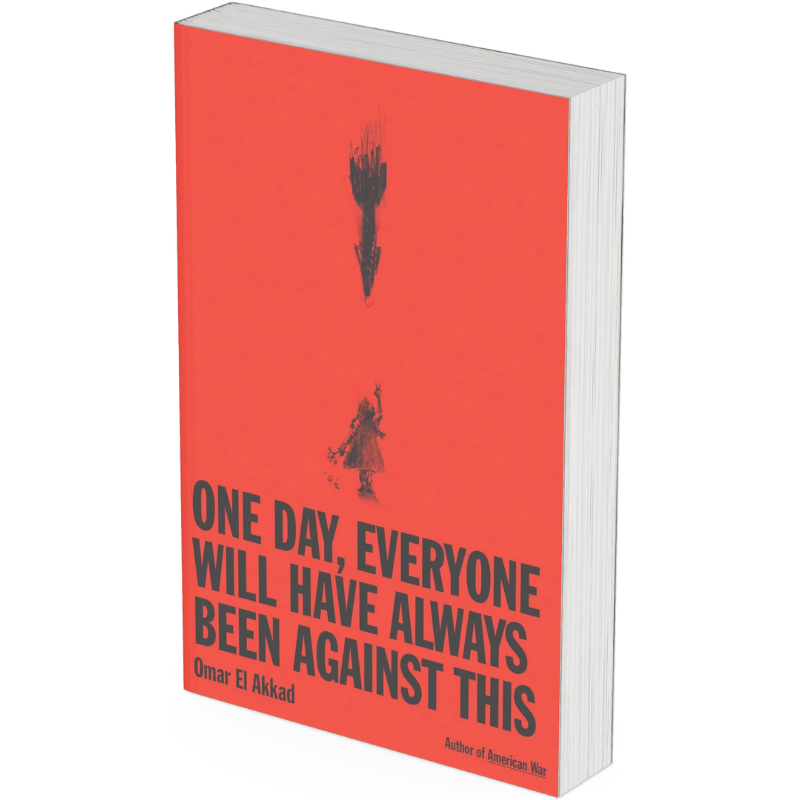
One Day, Everyone Will Have Always Been Against This
Omar El Akkad
Author Omar El Akkad joined the Amnesty Book Club on May 4, 2025. Please join the Amnesty Book Club to watch the recording.
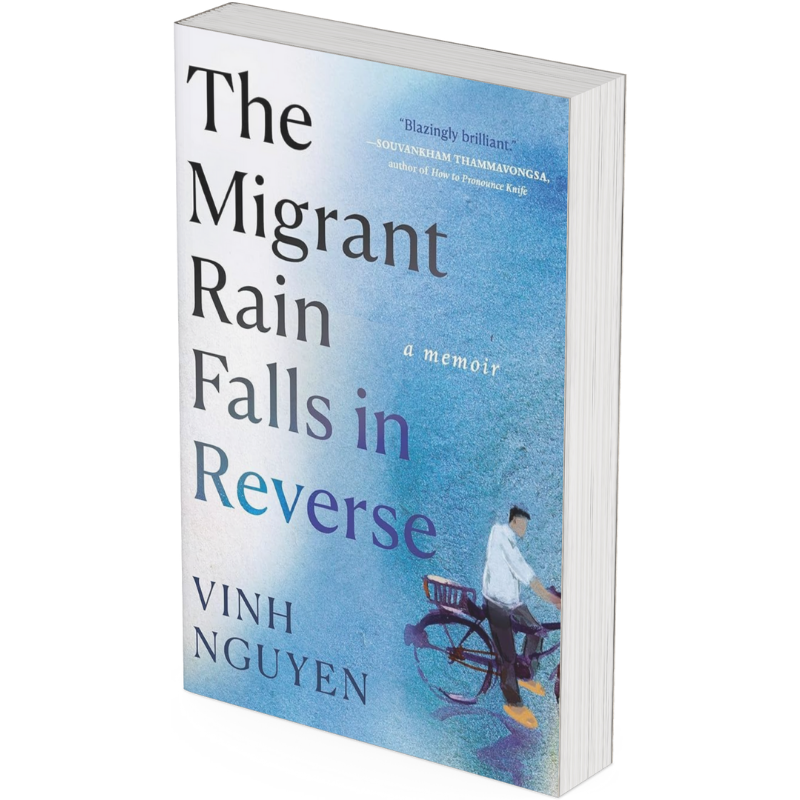
The Migrant Rain Falls in Reverse
Vinh Nguyen
Author Vinh Nguyen joined the Amnesty Book Club on June 20, 2025. Please join the Amnesty Book Club to watch the recording.
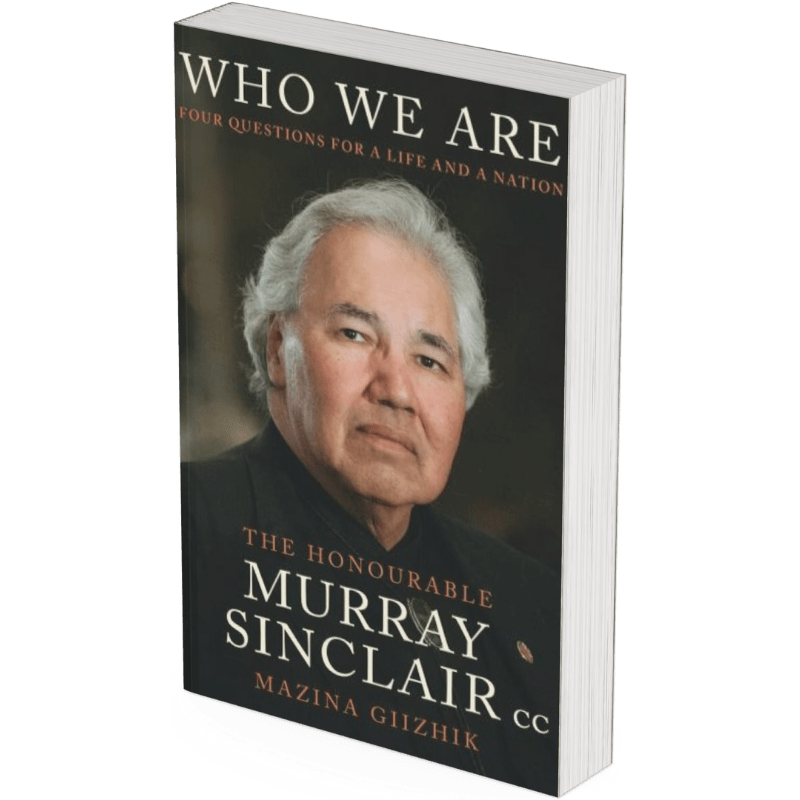
Who We Are
The Honourable Murray Sinclair
Senator Murray Sinclair’s son, Niigaan Sinclair joined the Amnesty Book Club on October 5, 2025. Please join the Amnesty Book Club to watch the recording.

The Immortal King Rao
Vauhini Vara
Discussion Guide coming soon.
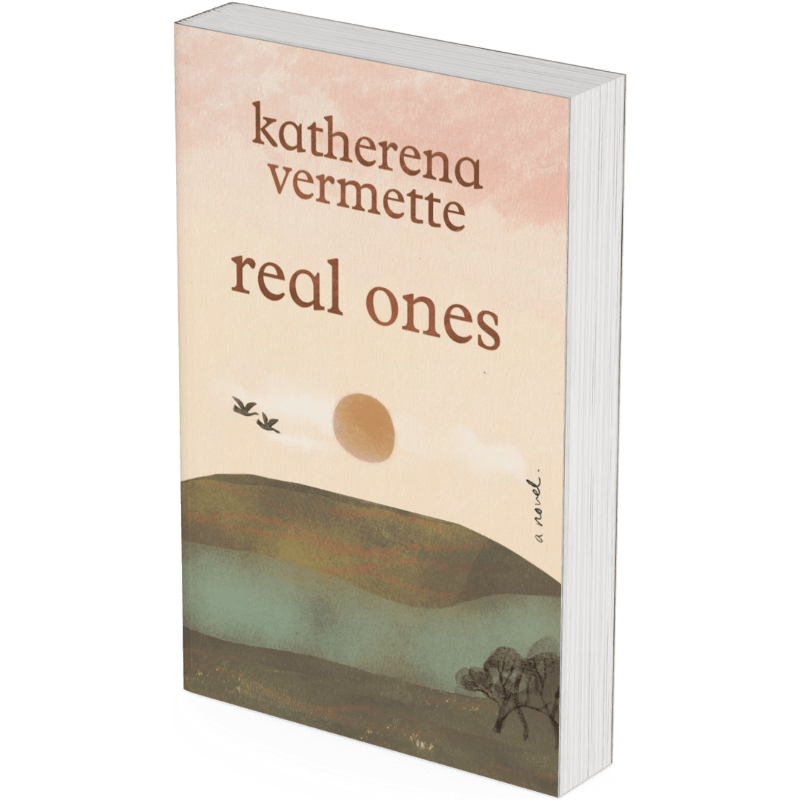
Real Ones
Katherena Vermette
Discussion Guide coming soon.

The Message
Ta-Nehisi Coates
Discussion Guide coming soon.
What members are saying
It’s wonderful that the Book Club provides an opportunity to participate in events that allow us to see inside the mind of the author and learn a little about them as well.
COLLEEN MORRISON
Amnesty International Book Club Member
Thank you, Amnesty, for continuing to be the voice for those without a voice, for educating those unaware, and for giving hope through actions.
LESLIE BULLARD
Amnesty International Book Club Member
I have donated to Amnesty for many years. Finding out that Amnesty also runs a book club just increased my admiration for the organization.
JEAN HILLABOLD
Amnesty International Book Club Member